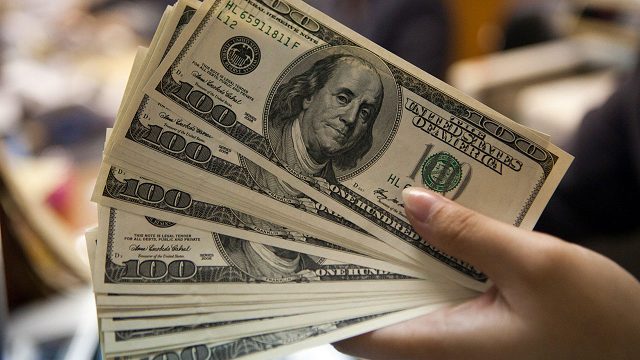The dollar held near a two-month high on Monday ahead of what is expected to be the first U.S. interest rate cut since the financial crisis, while the rising risk that Britain will exit the European Union without a deal knocked the pound to a 28-month low.
The Federal Reserve is forecast to cut interest rates on Wednesday by 25 basis points. The move would be a so-called insurance cut to protect the U.S. economy from global uncertainties and trade pressures, in contrast to cuts by countries facing more imminent risks.
President Donald Trump on Monday morning once again targeted the Fed, writing on Twitter that a small interest rate cut by the central bank would not be sufficient and accusing U.S. monetary policymakers of acting more cautiously than China and Europe.
The president, who is seeking re-election in 2020, would benefit from the financial jolt provided by a cut in short-term borrowing rates to counter a global economic slowdown.
The dollar index was up 0.11% in mid-morning trade to 98.115. Better-than-expected U.S. GDP data published on Friday had buoyed the index against rivals; the greenback retained those gains on Monday, hitting a fresh two-month top. But the move was relatively muted as traders refrained from placing big bets ahead of the Fed decision. The euro hovered at $1.113, effectively flat on the day and not far from Thursday’s bottom of $1.110, its lowest since May 2017.
“With a 25-basis-point easing fully baked in the cake, the question is how dovish will the Fed’s forward guidance be?” wrote analysts at Action Economics.
Despite Friday’s strong economic growth figures, “the markets are still pricing in very dovish guidance, with about 75 basis points in rate cuts projected this year. Hence, there could be sore disappointment if the Fed doesn’t fully deliver,” they wrote. “This could, with the ECB gearing up for a rate cut in September, keep the dollar underpinned, and maintain EUR-USD’s downward directional bias.”
Elsewhere on Monday, the pound fell more than 1% to a 28-month low as more investors scrambled to factor in the growing risk of a no-deal Brexit and the chance that new British Prime Minister Boris Johnson will call an early election.
“It is just the ongoing hardening of the Brexit line,” said John Hardy, Saxo Bank’s head of FX strategy. “There is so much optionality around it and if there is going to be a cliff edge, people will want to position for it.”













